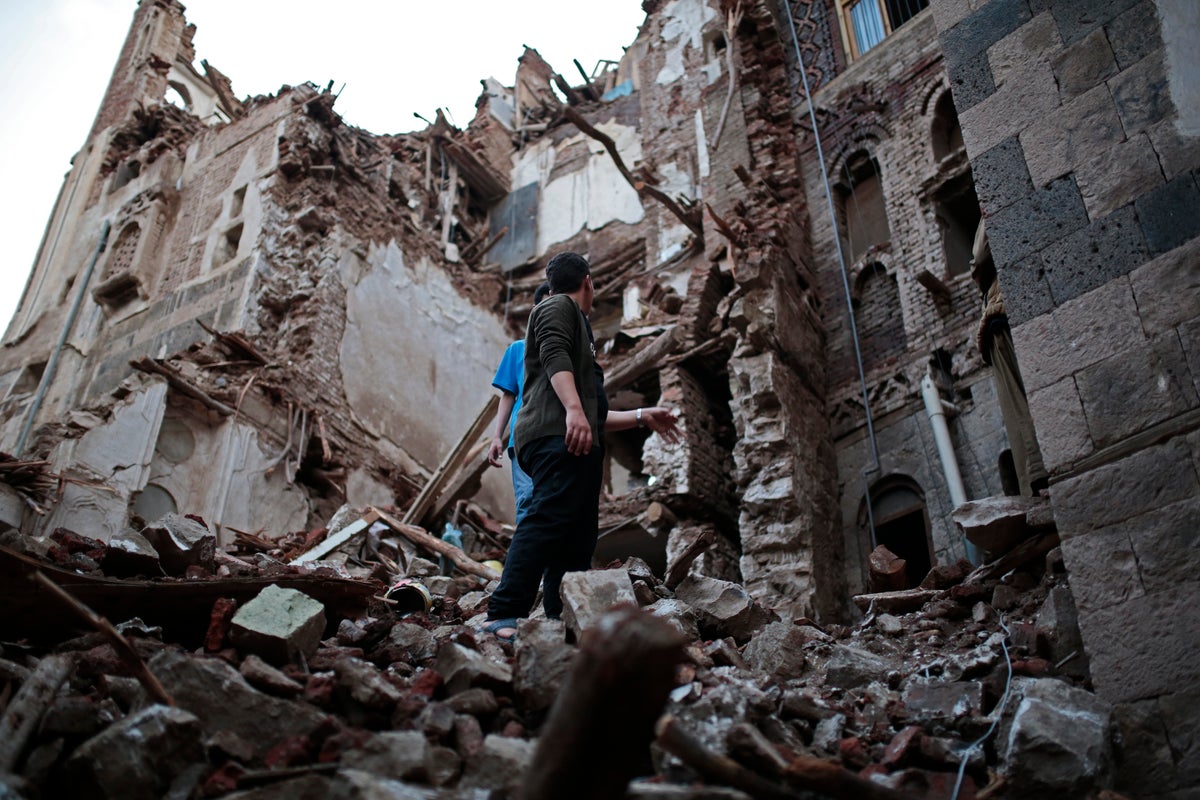
The top U.N. envoy for Yemen said Monday he is intensifying efforts to achieve an expanded truce between the warring parties that would hopefully lead to the start of talks on a ceasefire and preparations for resuming a Yemeni-led political process.
Hans Grundberg told the U.N. Security Council that the agreement by the internationally recognized government and Houthi rebels Aug. 2 to a two-month extension of the truce continues the longest pause in fighting since Yemen’s civil war began in 2014. The truce began April 2.
He said the parties' commitment to continue negotiations to reach an expanded truce agreement by Oct. 2 also provides an opportunity to further improve the daily lives of Yemenis facing one of the world’s worst humanitarian crises.
Failure to extend the truce “would lead to renewed cycles of escalation and violence,” he warned in the video briefing. “Yemen urgently needs to avoid this scenario, and I call on the parties to make the choice to build the necessary confidence to avoid a return to war and to begin to build a lasting peace.”
Yemen’s civil war erupted in 2014, when the Houthis descended from their northern enclave and took over the capital, forcing the government to flee to the south and then to Saudi Arabia. A Saudi-led coalition — then backed by the United Sates — entered the war in early 2015 to try to restore the government to power. Since then, the conflict has turned into a proxy war between Saudi Arabia and Iran, which backs the Houthis.
Four-and-a-half months into the truce, Grundberg said, it continues to “broadly hold in military terms” with no major military operations or changes to frontlines and no confirmed airstrikes in Yemen or cross-border attacks from Yemen.
The significant decline in casualties since the start of the truce is continuing, with the lowest casualty count in the first week of August since the beginning of the truce and the war, he said.
But Ghada Mudawi, the acting director of operations and advocacy in the U.N. humanitarian office, told the council that “according to open-source reports, more than 150 civilians have been killed since the truce began in April.”
She cited shelling into a residential district in Taiz, Yemen’s third largest city, that killed one child and injured 10 other children July 23.
Grundberg said he recently spent time on both sides of the frontline in Taiz, and opening the roads there and in other provinces “continue to be at the forefront of my efforts.” He said several proposals with different sets of roads and sequencing options have been presented to the parties.
On a positive note, Grundberg said that since the truce, 33 ships have been cleared to enter Yemen’s main port, Hodeida, bringing in almost a million metric tons of various fuel products. In addition, 31 round-trip plane flights have taken place between the capital, Sanaa, which is controlled by the Houthis, and Amman, Jordan, transporting more than 15,000 passengers, he said.
Despite the truce, Mudawi, the U.N. humanitarian official, said that “alarming conditions persist” in the economy.
She said the exchange rate for the Yemeni rial is now worse than it was before the truce, and the food supply chain is “precarious,” with commercial food imports falling for the fourth straight month, coming in 30% below the 12-month average.
Nonetheless, Mudawi said aid agencies continue to reach an average of 11 million people across the country every month though they continue to face “serious constraints” including insecurity and incitement against agencies on social media.
“Aid agencies reported 532 access incidents in the second quarter of this year — an improvement over the first quarter, but still equivalent to about six incidents every day — mostly due to movement restrictions,” she said.







